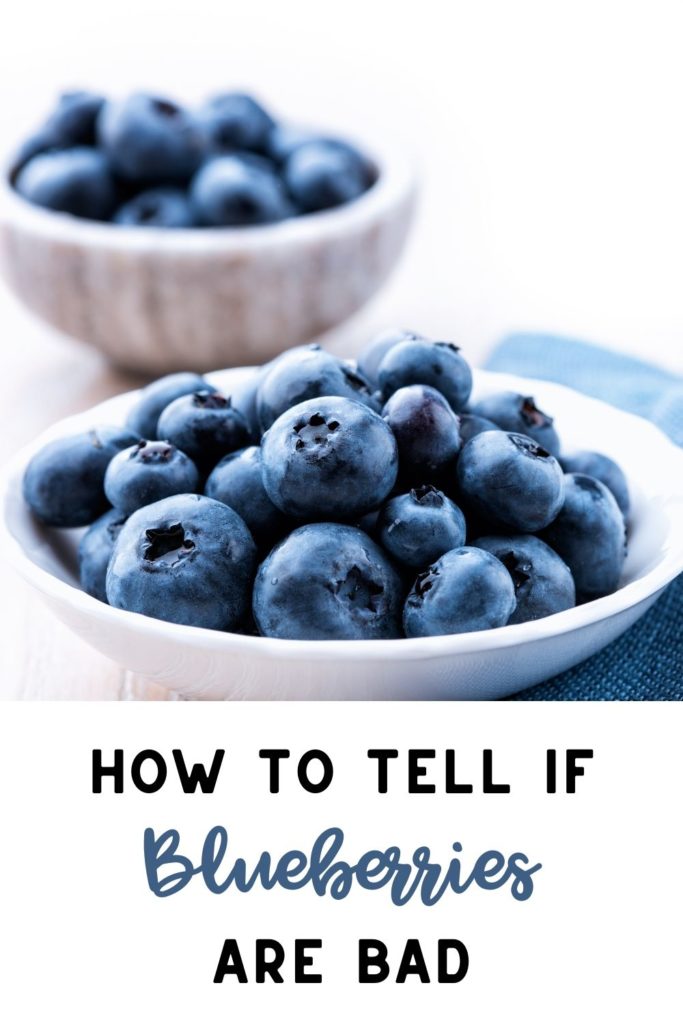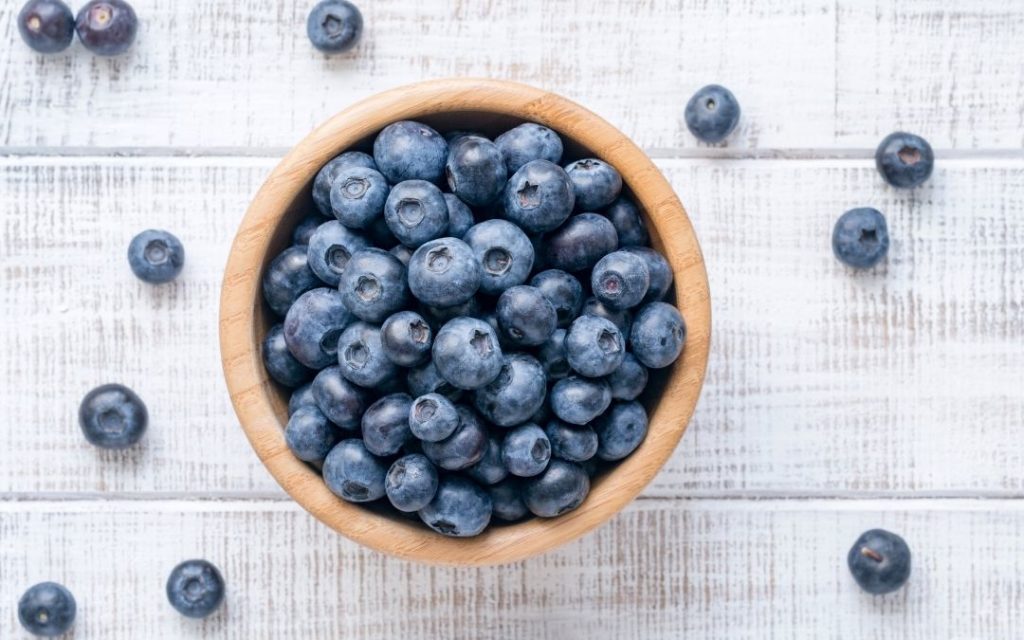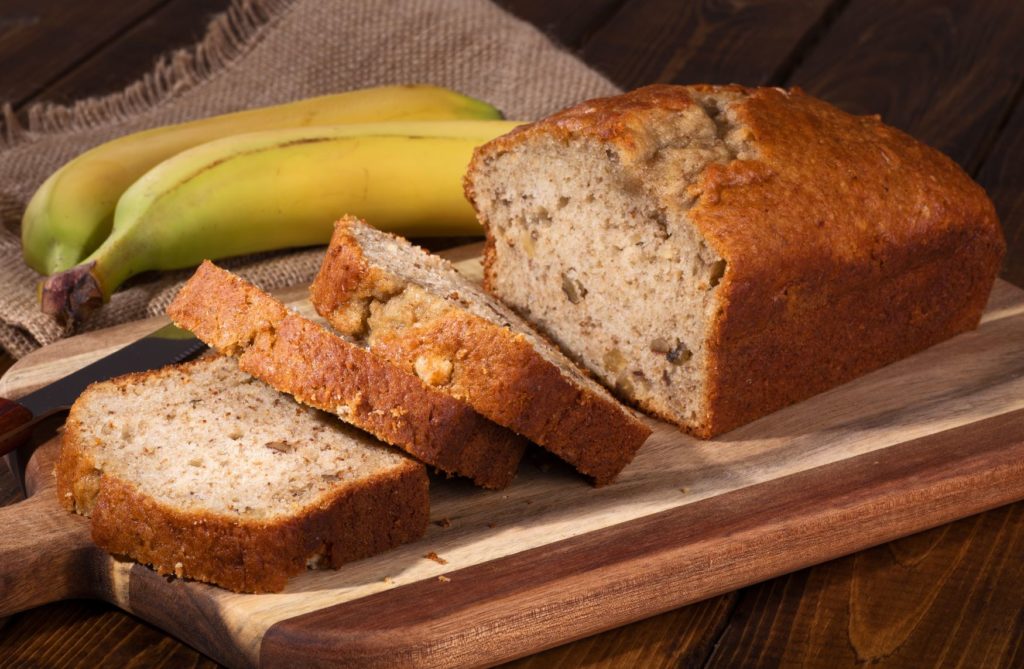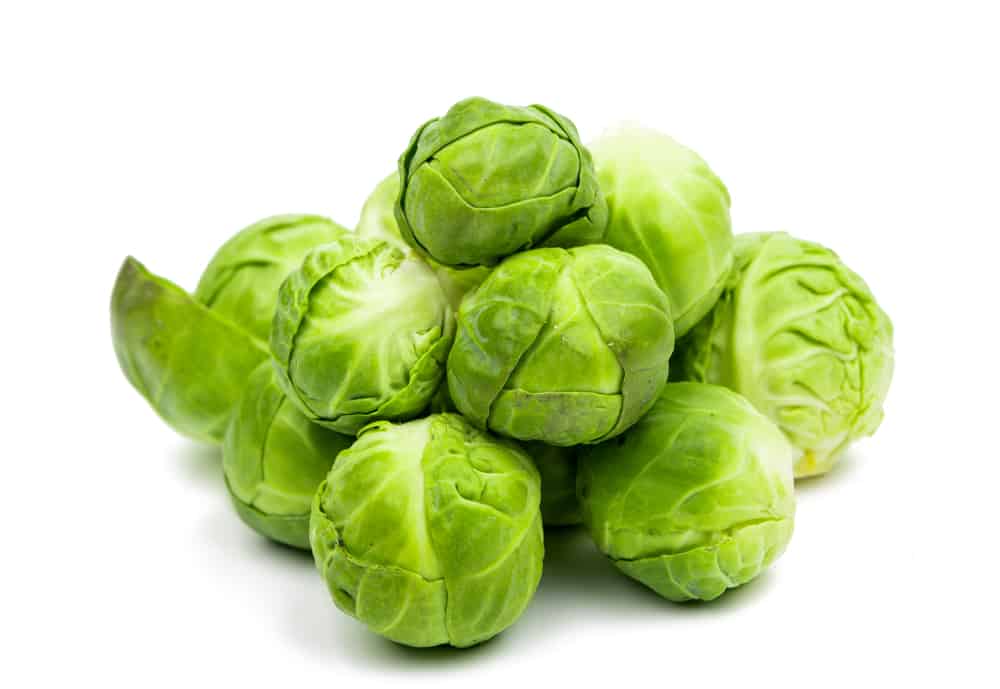Blueberries are an excellent source of manganese, phosphorus, calcium, iron, magnesium, zinc, and vitamin K. The consumption of these minerals and vitamins aids in the formation and maintenance of the bone structure and the sturdiness of the bone.
Because blueberries are salt-free, they assist in decreasing blood pressure by keeping a low sodium pH of the blood. They also contain anthocyanin, which gives berries their blue color and provides health advantages.
A mushy, soft feel, as well as some browning and bruising, are hallmarks of damaged blueberries, and mold will start growing where the stem was strapped. Please, if they’re moldy, toss them! Proper cleanliness and food safety diligence will aid in the prevention of food-borne disease.
In this post, I’ll take you through: how you can tell if your blueberries are spoiled, what would happen if you consume sour blueberries, how you can store them to extend their life span, how to keep them from molding, how to wash the berries before consumption, and many more you’d love to know—so let’s get right in.
This post may contain affiliate links. Read my disclosure policy here.
How Can I Tell If My Blueberries Have Gone Bad?
- Mould Growth: Mold can spread rapidly between berries. If you find white or any hued mold forming on a couple of them, throw them right away.
- Texture and Softness: Bad berries are frequently highly mushy. Furthermore, the surface of the external coating appears wrinkled and dry. As a result, if any berries felt a bit jiggly in your hands, they may no longer be edible.
- Nasty smell: There is a horrible stench to anything that is decaying or decaying. If the entire package emits an unsavory stench, then every single fruit may have gone wrong. However, if you pick out better ones, remember to wash them with a vinegar-water solution before consuming them.
- Unwanted taste: Unfortunately, it’s not challenging to identify spoiled fruit, and you can always have to taste it to evaluate its quality.
- For dried blueberries, or if you’ve kept them in the fridge for too long and haven’t noticed any visible changes, your taste buds may be able to help you out. To determine whether the flavor has changed, simply take a little bit of a fruit or vegetable.
- Frozen Spoilage: Dry patches or discoloration on frozen blueberries indicate that frozen burn has started. But as long as the berries are still edible, it’s not a big deal—it’s essential to consume them as soon as possible to prevent the quality from deteriorating even more.
What Happens If You Eat Bad Blueberries?
Because of the prevalence of dangerous pollutants such as the hepatitis A virus, blueberries, whether fresh or frozen, are prone to poisoning. As a result, blueberries should only be consumed new, well washed, and disinfected.
You must avoid expired blueberries—some people may get allergic reactions or respiratory issues due to inhaling the berries’ mildew.
Additionally, moldy blueberries are likely to be aged and nutritionally deficient than fresh and vibrant. In other words, eating such berries isn’t worth the danger. They should be discarded when they have gone rotten or if you’ve stored them for a longer time.
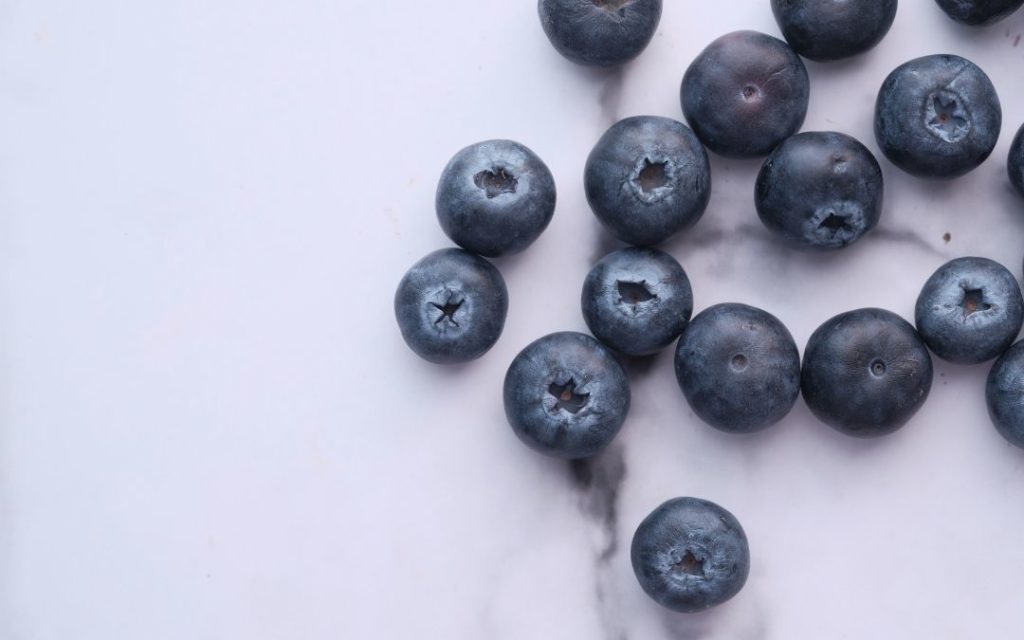
How To Store Blueberries To Extend Their Shelf Life?
To keep moisture and other contaminants out, you should store blueberries in a sealed air-tight container directly from the store. To extend the shelf life of your blueberries, don’t rinse them until right before you use them.
If you want to store blueberries for a long time, you can freeze them. Place the berries in a freezer for about two hours before transferring to a freezer bag or sealed jar.
Defrost the blueberries in a basin for about an hour, then use them for baking. It is possible to freeze fruit for a long time; but, due to its high water content, frozen fruit is prone to ice crystal formation rapidly. Blueberries that have been frozen for too long will eventually have more ice crystals since they dry up and shrink as they freeze.
Healthy eating, lower food expenditures, and reducing waste are just a few of the benefits of keeping your food correctly.
How Do You Keep Blueberries From Getting Moldy?
To clarify, proper storage of the blueberries will help extend their shelf life—they should be kept in the refrigerator in a container that allows air to circulate.
On top of a folded paper towel, put your blueberries in their clamshell or an open container. As a result, the air will circulate, and mold will not form.
How Do You Wash Berries Before Eating?
Vinegar help inhibits mold formation, according to specific reports on the subject.
Before consuming or storing berries, you can wash them using a vinegar-water solution made from 1 cup vinegar and 4 cups of water. There is no problem using fewer berries if you only have a tiny amount. Just make sure to stick to a 1:4 ratio when doing so.
So, if you’re using a ⅓ cup of vinegar, you’ll need a ⅓ of four cups or one ⅓ third cup of water. It’s also possible to make a larger batch by mixing 2 cups of vinegar with 8 cups of water. You can either use either distilled white vinegar or apple cider, depending on your preference.
How Can You Store Blueberries?
It can be disturbing to throw away an entire bag of moldy or rotten blueberries. To keep you out of such situations, below is a list of suggestions for the best ways to store blueberries;
1. Don’t Wash Before Storage
Moisture is one of the most common causes of bacterial and mold contamination in berries. Furthermore, blueberries are well known for going moldy in a short period. So, don’t wash if you won’t consume them right away.
2. Check The Batch Properly Before Storage
Although blueberry stems are edible, they are quite bitter. As a result, it is preferable to remove the stems before storing them. Furthermore, you must filter out any soft, rotten, or moldy berries in the batch. Rotten berries raise the overall moisture content of the container, increasing the likelihood of contamination.
3. Refrigerate The Blueberries
If you are unsure whether you will consume the berries within a few days, keep them refrigerated. You should store berries in a closed container lined with a paper towel or in fruit storage containers. Additionally, avoid storing blueberries in the coldest parts of the refrigerator and crispers, as humidity levels are high in these areas.
When it comes to berries, one of the essential tips for keeping them fresh is to store them in low humidity, cool areas. Besides, berries do not get enough air circulation in the crisper drawer.
4. Freeze The Overripe Ones
If you brought home a bag of fresh blueberries from the farm, you must freeze them if you want to keep them for more than two weeks.
5. Dry The Blueberries
Dry blueberries are a tasty snack, and they can be dried at home with a dehydrator or an oven. Boil the berries for a minute or two to soften and dry the outer skin. Then, bake the berries for four hours at 140 degrees Celsius—stirring them every 30 minutes. When the berries have completely dried, allow them to cool before storing them in an airtight container.
6. Wash With Vinegar
Wash the berries in a solution of one part vinegar and three parts water. Vinegar aid in killing mold and prevents it from growing. To remove the vinegar scent from the berries, rinse them with clean running water at the end.
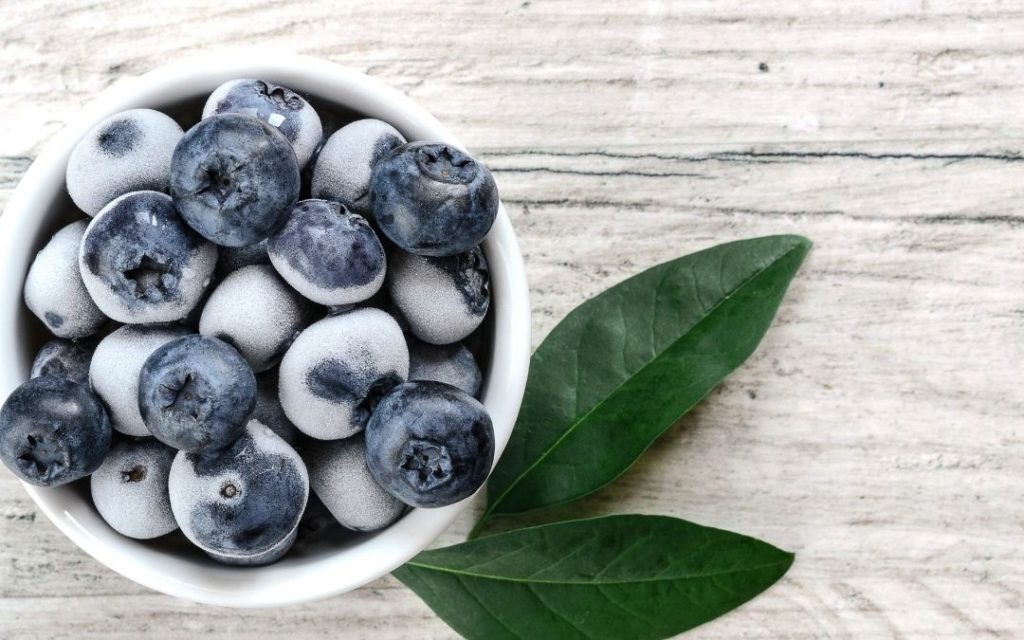
Can You Freeze Blueberries?
You can freeze blueberries if you want to keep them for an extended period—six months to a year. Blueberries are simple to freeze; simply wash them thoroughly with clean running water, dry them with a clean towel, and then spread them in a tray before freezing.
Freeze the berries for about two to three hours until they are fully frozen, and then store them in an airtight zip-lock bag. Finally, place the bag in the freezer, and you’re good to go. You can also use frozen blueberries straight in your recipes. For example, if you’re making a shake or smoothie, simply add some frozen clean blueberries to it.
However, if you plan to use the berries in baking, you should wash them and clean them. This ensures that the berries do not release too much juice onto the cooked dish. Furthermore, according to South Dakota State University research, frozen blueberries are even healthier than fresh blueberries.
The tiny ice crystals produced during the freezing process damage the berries’ cell structures, making anthocyanin—an antioxidant found in blueberry skin—more available to the human system.
Related Questions
1. Is It Ok To Eat Overripe Blueberries?
You can eat overripe blueberries. If a blueberry becomes shriveled and wrinkled, or if it begins to leak juices, it’s past its prime. Berries deteriorate rapidly, so once you’ve stocked up for the summer, you can use them up by baking something with them or freezing them to keep them longer.
2. What Is The White Stuff On Blueberries?
The waxy, silvery-white material on the surface of grapes, blueberries, and some plums is a barrier against insects and germs while also helping to lock in the fruit’s moisture. Because it fades with time and handling, the bloom is also an indication of freshness.
3. What Are The Side Effects Of Eating Too Many Blueberries?
Excessive fruit consumption can cause stomach discomfort in some people. According to Bruning, the potential adverse effects of consuming too much fruit include heartburn, diarrhea, reflux, and bloating.
4. Can Eating Too Many Blueberries Make You Gain Weight?
Yes, eating too many blueberries will make you gain weight or hinder you from losing weight. Fruits and vegetables, which are higher in water and fiber but lower in calories than other foods, are less likely to encourage weight gain or inhibit weight loss since you would need to consume much larger amounts to consume too many calories.
